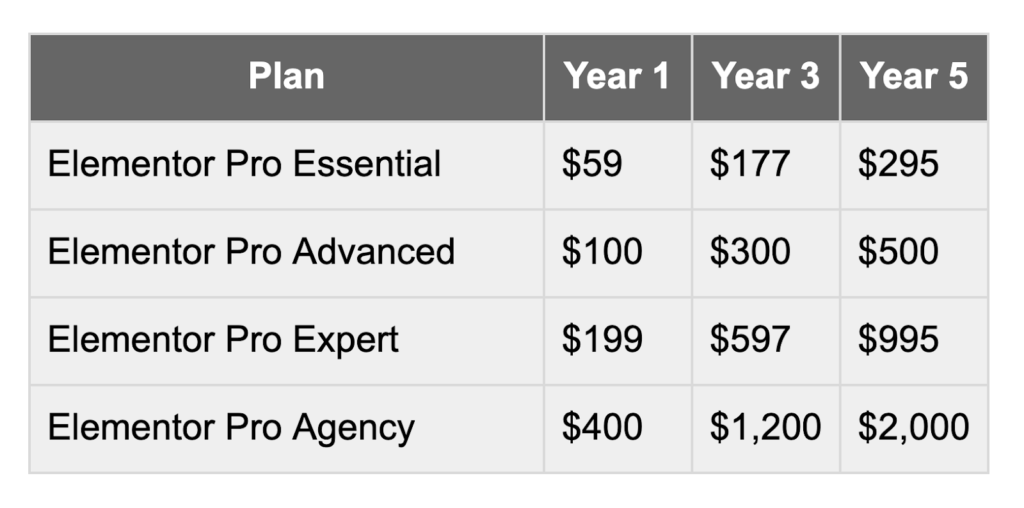If you’ve spent even a few moments building WordPress sites, you’ve likely run across Elementor Pro. It’s a tried-and-true option—thanks to its simple drag-and-drop builder and a large collection of widgets, it’s easier than ever to get up and running with a complicated site without writing a single line of code.
The problem is that simplicity comes with some strings attached. An increasing number of developers and site owners are starting to feel the pressure—be it the annual subscription fees, the slow-loading site due to plugin bloat, or the growing reliance on third-party extensions. So when you add it all up, the long-term value of Elementor Pro is starting to look a bit less attractive.
And what if you’re using high-performance hosting like Rapyd Cloud, where speed and optimization are everything? Your choice of builder isn’t just about features anymore; it’s about making sure your setup runs as lean and as fast as possible.
So in this post, we’ll uncover the real price of Elementor Pro, in terms of both dollars and headaches over the longer haul—and introduce a new, more clever Elementor Pro alternative that’s turning heads: Jupiter X.
Everything You Need to Know About Elementor Pro
1. Dependency & Lock-In
At its best, building and maintaining a WordPress site using Elementor Pro is a dream—the page builder’s visual building blocks and flexible tools allow for a fast, code-free workflow. But that reliance can easily become a problem if you ever think about shutting it down. Elementor Pro doesn’t merely add features to your site; it becomes part of its very foundation. Disabling it often results in broken layouts, missing widgets, and leftover empty sections or shortcode fragments.
Unlike standard plugins that add standalone features, Elementor Pro is deeply ingrained into your pages. If you turn it off, headers and footers might disappear, popups might stop working, and layout structures might break down—leaving your site essentially unusable.

Think about what it would be like to be locked out of something as critical as Theme Builder—your entire site’s layout control—just because you canceled your subscription.
There’s also a hidden time cost. Since Elementor review saves both your content and styling within its system, removing it won’t restore your content to clean WordPress formatting. This leaves you with two choices:
✔ Continue paying for the subscription
✔ Spend hours (or days) rebuilding your site using another tool or the native block editor
This deep integration is Elementor Pro’s greatest strength—and its biggest risk. While it gives non-developers more control, it does so at the cost of flexibility. If long-term sustainability is a concern, this type of vendor lock-in can quickly become a major roadblock. And this should naturally bring the consideration to use an Elementor Pro alternative.
2. Recurring Costs Add Up Quickly
Elementor Pro runs on a subscription model, which means the costs aren’t a one-and-done situation. You’re on the hook every year, and if you’re managing multiple websites, those charges multiply fast.
What starts as a manageable fee for a single site can balloon quickly when scaled across a growing portfolio. And with pricing tiers that increase based on site count, you’re essentially paying more just to maintain access to the same features you’ve already built your site around.

3. Plugin Bloat & Performance Overhead
Another common pain point? Plugin overload. Users often find themselves layering on additional third-party plugins to plug feature gaps that Elementor Pro alone doesn’t cover:
- CartFlows or CheckoutWC for building sales funnels in WooCommerce
- Happy Addons, Unlimited Addons, or Crocoblock to get extra widgets and styling options
- YITH plugins for advanced eCommerce tools like swatches or upsells
Each of these adds scripts, styles, and more backend strain. That means more memory usage, more server calls, and ultimately—slower load times. For high-performance hosting providers, this bloat chews through resources, often dragging down the very speed and SEO scores site owners work hard to optimize.
If your site leans on Elementor Pro plus a handful of these add-ons, it may underperform on speed audits like Google PageSpeed Insights or GTmetrix. The more complex your plugin stack, the heavier your site becomes—and that can directly impact both rankings and the user experience.
Jupiter X: One-Time-Fee Option
Jupiter X is a multi-purpose WordPress theme powered by Elementor that eliminates the need for Elementor Pro entirely. Developed by Artbees, it combines a powerful, performance-optimized core with a broad set of native tools and integrations. It is fast becoming the go-to solution as Elementor Pro alternative for developers and site owners who value freedom, speed, flexibility, and cutting waste.

1. One-Time Payment, Full Access
Jupiter X’s biggest selling point is its pricing—one $58 payment gets you everything. No subscriptions, no annual renewals—just complete, permanent access. If you manage several websites or work with multiple clients, that’s a serious long-term saving.
2. All Elementor Pro Features—Natively
Jupiter X replicates—and in some cases, improves upon—the core functionality you’d normally have to pay for with Elementor Pro:
- Layout Builder (think of it as a Theme Builder alternative)
- Form and popup builders
- Motion effects & animations
- Global styling and widgets
- Conditional display settings
- Custom code, font, attributes, icons, and more
So, you still get full creative control, without being locked into Elementor Pro. Kinda makes sense to use this as an Elementor Pro alternative, doesn’t it?
3. Includes WooCommerce Optimization Suite
For online stores, Jupiter X also comes bundled with SellKit, a powerful WooCommerce enhancement toolkit to increase order value, streamline conversions, and drive engagement and retention:
- Custom Checkout Pages
- Sales Funnels & Order Bumps
- Personalized promotions such as smart coupons, automated discounts and checkout notices
- Built-in variation swatches

These features help Jupiter X stand out as a comprehensive WooCommerce theme, removing the need for extra tools and plugins like CartFlows, CheckoutWC, or various YITH extensions.
4. Replacing Addon Libraries with Native Widgets
If Jupiter X is to be a proper Elementor Pro alternative, it should also have proper alternatives to the addons that Elementor Pro offers. And it actually does. Jupiter X also comes with its own large collection of advanced widgets such as Product Filter, Opt-in, Sticky Media Scroller, Team Members, Marquees, Content Switch, Accordions, Image Comparisons, Photo. Album, Rollers, Business Hours and more, removing the need for third-party libraries like:
- Crocoblock
- JetElements
- Happy Addons
- Unlimited Elements
Fewer plugins mean fewer compatibility headaches—and noticeably better performance.
5. Performance Built-In
Since Jupiter X consolidates what would normally require multiple plugins, your site stays lighter under the hood. Less bloat translates into:
- Faster page load times
- Lower Time to First Byte (TTFB)
- Improved Core Web Vitals
- Reduced strain on your hosting resources
If you’re on an optimized platform like Rapyd.cloud, this efficiency can make a real difference in both cost and performance.
6. More Premade Templates
Jupiter X offers over 450 pre-made designs—far more than Elementor Pro. For agencies and freelancers, that means faster turnarounds and more variety for client work.

Final Thoughts: Rethinking Your WordPress Stack
There’s no denying Elementor Pro played a major role in modern WordPress design. But for developers, agencies, and serious site owners, its cost, complexity and dependency are becoming harder to justify.
Jupiter X offers a smarter Elementor Pro alternative. You can:
✅ Build advanced, dynamic WordPress sites
✅ Streamline and optimize WooCommerce
✅ Cut out unnecessary plugins
✅ Improve speed and stability
✅ Save hundreds—if not thousands—over time
And you can do all of that with just one lifetime license.
If future-proofing your WordPress setup and getting more out of your hosting plan is on your radar, Jupiter X is definitely worth exploring.





